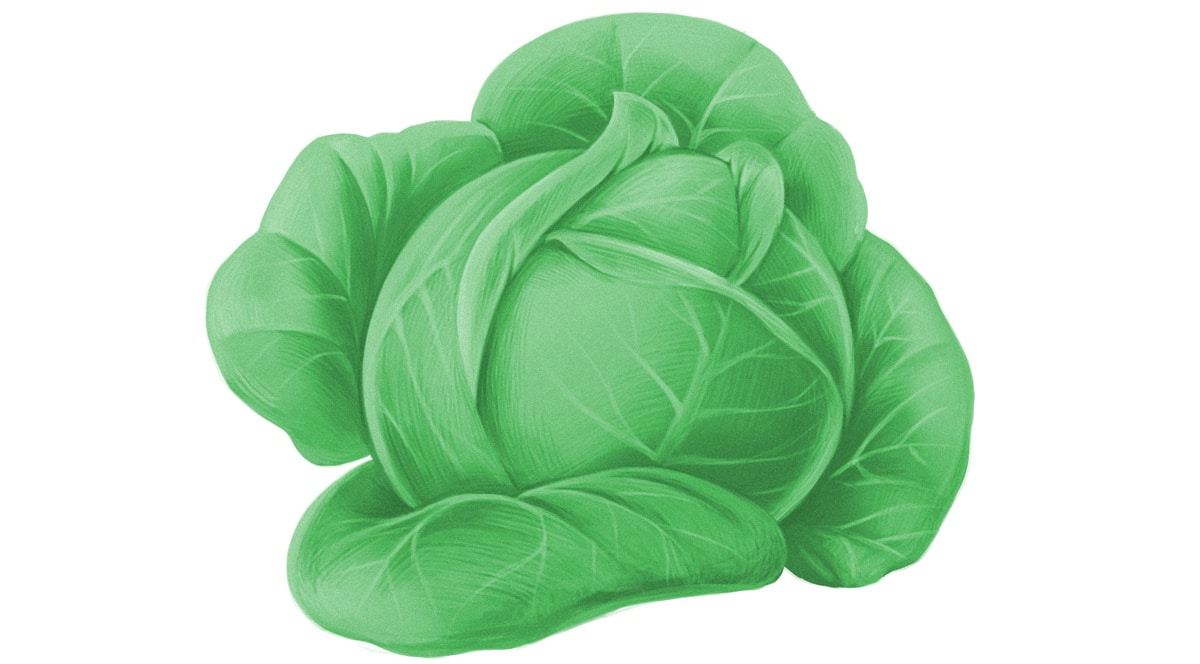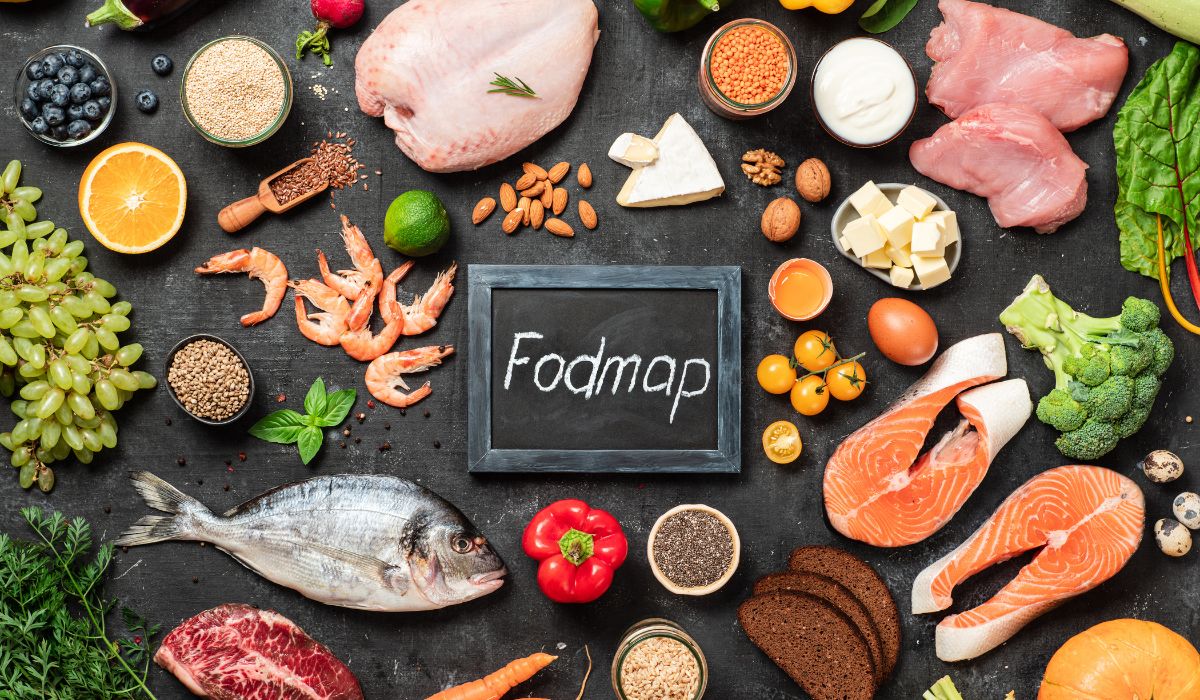The typical view of a good diet is “the more fiber, the better.” Pile on the psyllium husk and oat bran! Vegetables everywhere! What could be better for you?
That actually works really well for some people (and if that’s you, more power to you) but other people react quite badly to a high-fiber diet, especially a particular group of fiber types called FODMAPs. FODMAPs stands for:
Fermentable
Oligosaccharides,
Disaccharides,
Monosaccharides,
and
Polyols.
Oligosaccharides, disaccharides, monosaccharides, and polyols are all technical names for different types of carbohydrates, but the really important part of FODMAPs is the “fermentable.” When you eat these fibers, your gut bacteria get hold of them and ferment them. And if you’ve ever seen fermentation in action, you know it’s a really gassy process. In people with a lot of FODAMP-fermenting bacteria, eating high-FODMAPs foods can cause gas (obviously), intestinal pain, bloating, constipation and/or diarrhea, and a bunch of related symptoms.
FODMAPs also draw water into the colon, which can cause or increase feelings of bloating and distention.
FODMAPs are found in a lot of foods, including…
- Onions, garlic, and other vegetables in that family (leeks, shallots, etc.)
- Broccoli, cauliflower, Brussels sprouts, and other vegetables in that family (cabbage, etc.)
- Dried fruit
- Fruits with a big pit in the middle (like peaches and apricots)
This PDF from the University of Virginia has a nicely-organized list of high-FODMAP, low-FODMAP, and medium-FODMAP foods.

Some high-FODMAP foods are eliminated on a Paleo diet, but a lot of them aren’t. So even if you’re eating Paleo, you might still be getting digestive problems from a high-FODMAP diet.
High-FODAMP foods aren’t “bad” in the abstract. In fact, they’re perfectly nutritious – some of the most nutrient-dense foods around are high in FODMAPs. If you’re already healthy, then giving up FODMAPs won’t make you any healthier. But if you’re struggling with gut problems, then reducing or eliminating FODMAPs may be very helpful. In fact, several studies have actually looked at FODMAP reduction or elimination for…
1. Irritable Bowel Syndrome
The whole reason why low-FODMAP diets got so much good press in the first place is that they're really helpful for Irritable Bowel Syndrome, or IBS (don’t confuse it with Inflammatory Bowel Disease, or IBD). IBS is the gastrointestinal disease of “nobody knows what’s wrong with you, but you’re having [watery diarrhea five times a day/constipation so bad you don’t have a bowel movement for a week/cripplingly painful gas/randomly awful abdominal cramps/all of the above], so we’ll call it a syndrome for lack of any other ideas.”
Several studies have evaluated the low-FODMAPs diet for IBS. Here’s one: patients were put on either a low-FODMAP diet or a typical diet for 21 days. At the end of the period, the low-FODMAP diet significantly reduced gastrointestinal symptoms in general, bloating, pain, and gas. It completely wiped the floor with the typical Western-style diet.
This review goes over more of the evidence. Especially for IBS patients who tend towards diarrhea, there’s a significant amount of evidence in favor of a low-FODMAP approach.
2. Inflammatory Bowel Disease
Similar acronym; completely different problem. IBD is an inflammatory autoimmune gut disease. The two main types of IBD are Crohn’s Disease and Ulcerative Colitis.
There’s not as much evidence for a low-FODMAP diet in IBD, but there are a few studies.
This study looked at low-FODMAP, medium-FODMAP, and high-FODMAP diets in patients with Crohn’s Disease. The researchers found some interesting stuff about the composition of gut bacteria on each of the three diets, but on the high-FODMAP diet, the researchers reported that “symptoms doubled in severity.” Ouch! That’s definitely a decent case for FODMAP restriction, at least as an experiment.
On the more positive side, this study found that a low-FODMAP diet reduced gastrointestinal symptoms in patients with IBD.
It’s important to stress that symptom relief isn’t the same thing as a cure. Both of these studies basically found that FODMAP restriction is a decent painkiller, not a solution to the actual problem. But all other things being equal, wouldn’t you rather have the painkiller than not?
3. Functional Dyspepsia
It’s easier to define functional dyspepsia by the symptoms than anything else. You might have this problem if you…
- Feel full after eating only a small amount of food.
- Feel uncomfortably stuffed/bloated after a normal meal
- Have a lot of problems with belching
- Experience stomach pain or burning related to eating
Some unfortunate patients have both functional dyspepsia and IBS, but they’re different problems.
This paper discusses the reasons why FODMAPs can aggravate functional dyspepsia. The magic is basically in the osmosis: FODMAPs fibers draw water into the gut, which can increase feelings of fullness and bloating. If you have functional dyspepsia, especially if your problems are more on the "constantly over-stuffed" side, it might be worth a trial run to see if eliminating FODMAPs helps.
4. Endometriosis
The fourth problem on the list isn’t a gastrointestinal disease at all. Endometriosis a disease of the female reproductive system. In healthy women, the uterus has a lining of soft tissue called the endometrium. Normally, the endometrium grows inside the uterus – it grows for a month and then breaks down, which is where menstrual blood comes from. In endometriosis, it grows outside the uterus. This is very painful, especially during menstruation.
Women with endometriosis often have what’s called “visceral hypersensitivity,” or a high sensitivity to pain in the abdomen, and this study points out that there’s actually a lot of symptom overlap, to the point where women with chronic pelvic pain might be getting misdiagnosed depending on where they go first: the gynecologist or the gastroenterologist. In other words, some women with IBS might be getting an inaccurate diagnosis of “endometriosis” because they went to a gynecologist and the gyno didn’t consider IBS at all (and vice versa).
This study enrolled 160 women with IBS and found that over ⅓ of them also had endometriosis – that’s much higher than the rate in the general population. After just four weeks on a low-FODMAP diet, 72% of those women had substantial improvement in their IBS symptoms (compared to 49% of women with IBS but without endometriosis).
So some women with “endometriosis” might actually have IBS and benefit from a low-FODMAP diet. Other women have both endometriosis and IBS, and those women do even better with FODMAP restriction than women with IBS alone.
5. Non-Celiac Gluten Sensitivity
Gluten is a protein found in wheat, barley, and rye.
Gluten sensitivity isn't the same thing as celiac disease. In celiac disease, there’s a verifiable reaction specifically to the gluten protein. People with celiac disease absolutely can’t “cure” themselves with a low-FODMAP diet and definitely shouldn’t try it! But there’s also a thorny problem called non-celiac gluten sensitivity (NCGS). NCGS is marked by a variety of bad responses to gluten, including digestive symptoms.
We’ve questioned before whether NCGS is really the gluten or something else in wheat (and other gluten grains). This study tested a low-FODMAP diet with one of three supplements:
- 16 grams of pure gluten (NO other components of wheat, just the gluten protein)
- 2 grams of pure gluten
- 16 grams of pure whey (control)
All of the groups improved by more or less the same amount. In other words, if patients are on a low-FODMAP diet, adding pure gluten (without any other components of wheat) didn’t actually make their digestive symptoms any worse. This suggests that in some people, NCGS may actually be a reaction to the FODMAPs carbohydrates in gluten grains, not to gluten specifically.
NCGS is complicated and it's very possible that different people with "NCGS" are actually reacting to different components of wheat. For some, it might be the FODMAPs. For others, it might really just be the gluten. But if eliminating gluten grains didn’t completely solve your particular “gluten sensitivity” symptoms, reducing FODMAPs might be something to look into.

It’s Not a Cure-All
Eliminating FODMAPs is the answer to some people’s problems. But for other people, it’s only part of the solution – and it doesn’t necessarily help everyone. If your digestive pain is really caused by stress, then cutting out FODMAPs probably won’t do much for you, because the problem wasn’t actually FODMAPs to begin with.
But for people with inexplicable chronic digestive problems, cutting out FODMAPs may be really helpful.
It’s also worth noting that not everyone is sensitive to every single FODMAPs carbohydrate. You might be only sensitive to onions and garlic, but perfectly fine with cauliflower and cabbage. If a full-on FODMAP elimination helps, try re-introducing different foods one at a time to see if you can tolerate some.
It's worth considering, especially if nothing else seems to help, and if it doesn't work, you can always run straight back into the open arms of garlic-roasted Brussels sprouts.





Leave a Reply